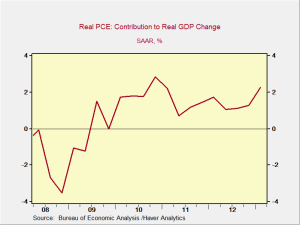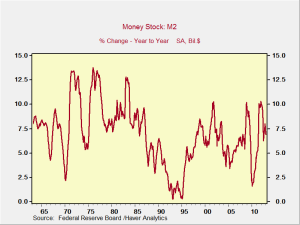I have written before about the difference between precision and accuracy, and the challenge of distinguishing signal from noise. With the constant barrage of economic and stock market data, much of which is taken to ridiculous levels of precision—one part in a thousand, for example, for the unemployment rates—the problem is particularly acute. What makes it even more ridiculous, of course, is that the figures will often be revised substantially. Precision is an illusion in this area.
This isn’t anyone’s fault; it’s just the reality of collecting messy data across a massive economy in a massive country. It is remarkable that the statisticians do as well as they do.






